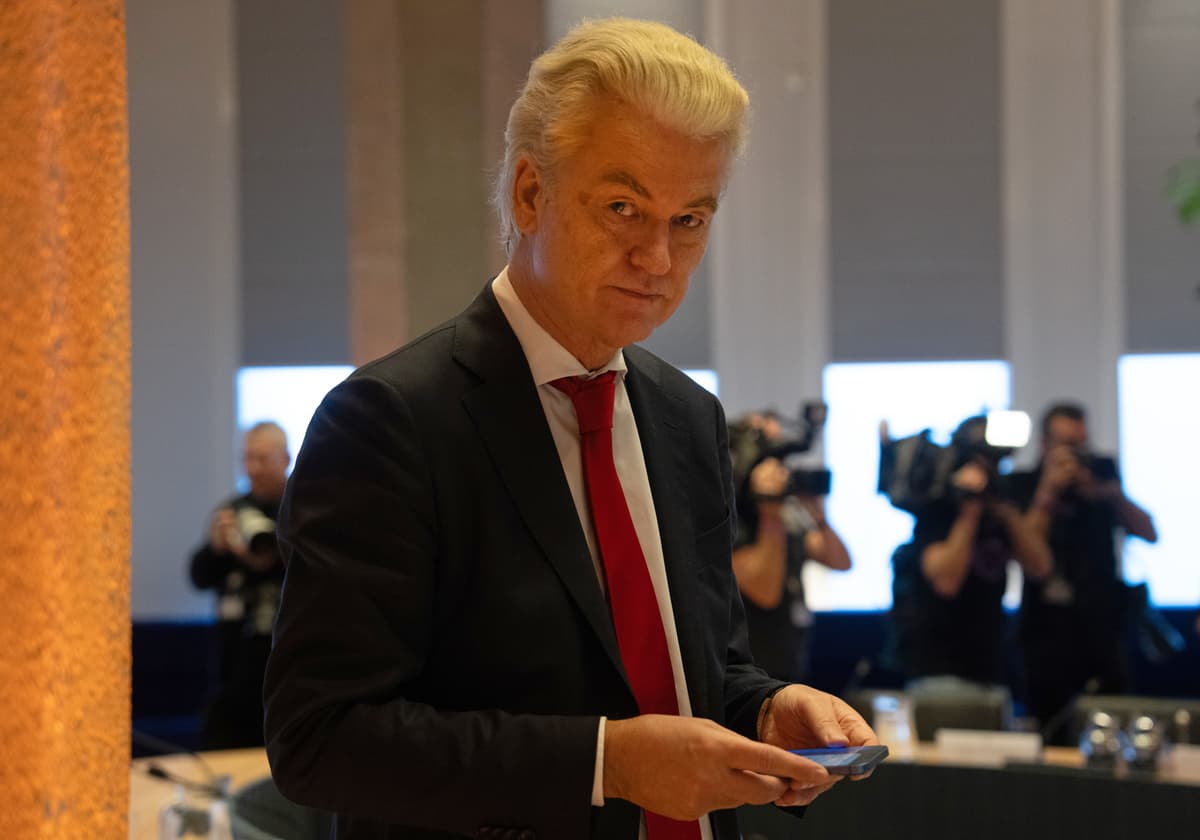Wildly Uneven European Response To Middle East Turmoil Underscores Irrelevance of Brussels as Israel Presses On
Dutch politician Geert Wilders calls the Ayatollah Khamenei a ‘dangerous maniac’ while Brussels reacts to Iranian aggression turmoil with virtually nothing.

When it comes to diluting the diminishing unity of the EU bloc, it isn’t just immigration anymore. The breathtaking pace of events in the Middle East began with Israel’s elimination of Hezbollah terror chief Hassan Nasrallah on Friday and continued on Tuesday with a barrage of Iranian ballistic missiles launched, in the main unsuccessfully, at Israel. Kinetic action in the region coupled with wildly divergent views about what to do about it, if anything, has left Brussels winded, sputtering, and on the sidelines.
The significance of Europe’s impotence will manifest itself over time, but for now the general feebleness itself is striking. Few would say that when it comes to the ongoing Iranian threat, through Tehran and its proxies, that Israel has all the answers but it has the mettle and the resolve.
On a purely military level, London and Paris have each taken action independent of Brussels. With respect to Tuesday’s dramatic events, the British defense ministry stated on X that “Two Royal Air Force Typhoon fighter jets and a Voyager air-to-air refueling tanker played their part in attempts in attempts to prevent further escalation in the Middle East, demonstrating the UK’s unwavering commitment to Israel’s security.”
France has deployed its own naval assets to the coast of Lebanon as a precautionary measure to potentially evacuate French citizens. Around 23,000 French and French-Lebanese residents live in Lebanon.
The EU, however, is still scrambling to find a unified response to the escalating tensions in the Middle East, and the failure to publish a joint statement on Lebanon has laid bare disagreements between EU member states. If an actual response were needed at some point, it appears more likely than not that none would be forthcoming.
The EU’s top diplomat, Josep Borrell, said at a press conference on September 30 that “the sovereignty of both Israel and Lebanon has to be guaranteed, and any further military intervention will dramatically aggravate the situation, and it has to be avoided.” Following virtual emergency talks between EU foreign ministers, Mr. Borrell announced a joint EU27 declaration on the issue, but — quelle surprise — the lack of unanimity in finding common wording compelled him to release a statement on his own.
Some member states are actually supportive of Israel finally dealing with Hezbollah, and by extension with the Islamic Republic of Iran. Some staunch Israel supporters, including Hungary and Austria, have managed to water down several joint EU initiatives they considered too critical of Jerusalem. The Czech Republic ultimately blocked a joint statement that would have called for an “immediate ceasefire” between Israel and Hezbollah.
Prague objected to the text for trying to unilaterally limit Israel’s right to self-defense against Hezbollah, demanding to add text on the withdrawal of Hezbollah from the areas close by Israel’s borders.
In his statement of October 1, Mr. Borrell appealed for an “immediate ceasefire” between the parties and urged the “full and symmetrical implementation” of UN Security Council resolution 1701 — which crucially was never implemented and which as early as 2006 had among other things called for the full disarmament of Hezbollah.
“The sovereignty of both Israel and Lebanon has to be guaranteed. Any further military intervention would dramatically aggravate the situation,” Mr. Borrell said. One might say that his verbiage is a day late and a few euros short.
The same might be said of the G7. On Wednesday, Italy, which currently holds the G7 presidency, released a wan statement that read in part, “a conflict on a regional scale is in no one’s interest” and “a diplomatic solution is still possible.”
One European politician who might disagree with that is the leader of the Party for Freedom in the Netherlands, Geert Wilders. In response to a menacing remark made by Iran’s “supreme leader” Ayatollah Ali Khamenei on X on Tuesday, following the Iranian attack, Mr. Wilders branded the ayatollah a “dangerous maniac” and “a sick person who will lose” because “logic, democracy and freedom will win and we will always support Israel.”
Both social media interlocutors expressed themselves in Hebrew. Could that be subtle reflection of a new reality wherein the fulcrum of events in the Middle East is Jerusalem? For all practical purposes, right now it is nowhere else — certainly not Brussels.

